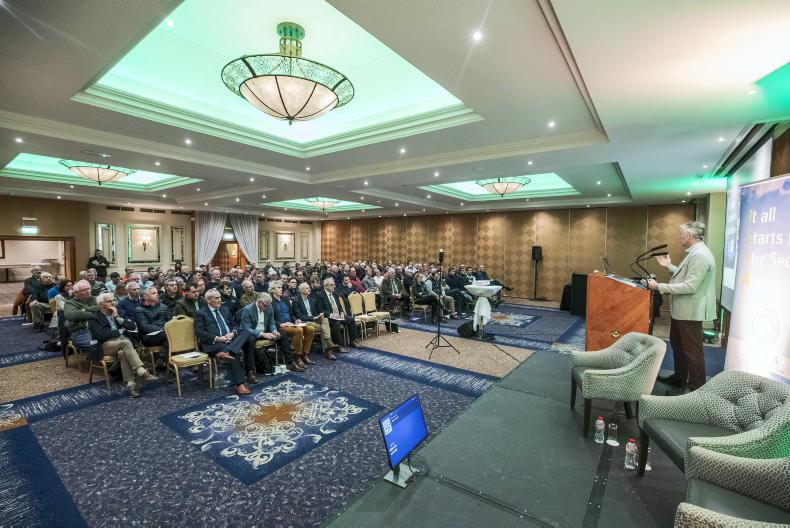The problem of blackgrass is not going away. If anything, it is only beginning and spreading at a rapid pace. That was a clear take-home message from the Irish Seed Trade Association’s (ISTA’s) seminar last week attended by approximately 400 seed growers and members of the trade, which focused on securing seed supply into the future.
There are clearly opportunities for tillage at present. Consultant Pádraig Brennan stated that tillage is now front and centre at policy and Government level due its low level of greenhouse gas emissions compared to other sectors.
Pádraig, who works as a consultant and has been carrying out research into the Irish tillage industry, outlined opportunities to increase the use of Irish grain in drinks production.
He also described a growing market for oats from the US and Asia, as well as for consumers on gluten-free and plant-based diets, but also in animal feed as research is showing potential methane reductions where oats are included in some animal diets.
He noted that as consumers become more focused on the environment there are long-term opportunities for the sector, which claims to have a lower impact on the environment than others, but these claims need to be backed up.
Data to track and improve the sector’s footprint is needed, as well as ways to demonstrate efforts to protect and enhance biodiversity.
Crop production is being seen as a solution, but in order for that solution to be available and for opportunities to be utilised then the threat of blackgrass and other grass weeds needs to be kept at bay.
Higher voluntary standards
Throughout the seminars, attendees were filled with confidence about Irish-certified seed. It is something that both the Irish Seed Trade Association (ISTA) and the Department of Agriculture, Food and the Marine are to be commended for.
Irish-certified cereal seed already has a zero tolerance for blackgrass. The latest initiative from ISTA is a higher voluntary standard scheme on cover crop seeds.
ISTA members, along with the Department of Agriculture, have committed to doing a search on a 3kg sample from every seed lot imported into this country.
Cover crop seeds generally come in straights and mixes are made in Ireland. So, the straight will be tested for blackgrass, as well as sterile brome and wild oats.
Once free of blackgrass, the straight will receive an orange label and will be included in a cover crop mixture, which will have the green Department label on it
Remember, these crops are difficult to grow for seed in Ireland due to climate, so the majority are imported.
Once free of blackgrass, the straight will receive an orange label and will be included in a cover crop mixture, which will have the green Department label on it. If the cover crop seed is assembled by an ISTA member, then the farmer can be confident it has been tested for blackgrass.
Donal Fitzgerald of Goldcrop reinforced the importance of plant breeding research, the Department of Agriculture’s variety trials and certified seed in helping to reach sustainability targets for food production.
He explained that the Department of Agriculture’s variety testing trials and recommended list system facilitate the development of “Ireland-only” varieties, which helps the country to maintain its competitive advantage.
Varieties are examined in numerous Irish environments and tested for disease resistance, straw strength and grain quality under Irish conditions.
This was confirmed by graphs showing wheat and barley yields across the world.
Barley yields
Ireland came out on top for barley yields for much of the past two decades, while Ireland was second on wheat yields to Germany most recently and third to the UK before this.






 This is a subscriber-only article
This is a subscriber-only article









SHARING OPTIONS: